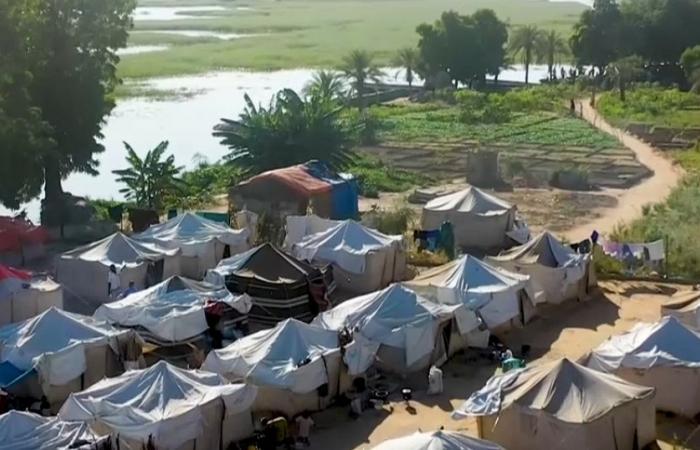Residents of Chad’s capital N’Djamena found themselves in dire straits when the Chari River and its tributary Logone reached record levels. This extraordinary flood was caused by torrential rains in October, which submerged entire neighborhoods.
Around 4,000 people have found refuge in the Chari-Baguirmi displaced persons camp, in the Toukra district of N’Djamena, the capital of Chad.
“This is where I live. This is where I sleep. That’s all. That’s all I eat. The water destroyed everything, the rice, the money, the okra. Everything, everything is in the water”, said displaced woman Gloria Nadgitssen.
Floods in Chad have increased the dangers for women and girls, including those in the displaced persons camp.
“This flood really threatened these women. Among them, I met a woman whose husband was infected with HIV. She is the mother of five children, she is twenty-seven years old and her house collapsed on her. She can no longer do anything for her children, she can no longer do anything. She no longer has a home, or even food. So the situation is really horrible for her,” explained Lucille Denembaye, midwife.
Abruptly deprived of health care, food, shelter and clean water, pregnant women about to give birth have had their labors become life-threatening, and malnourished mothers have been unable to produce milk for their newborns.
According to the United Nations Population Fund (UNFPA), since July 2024, catastrophic floods in Chad have seriously affected nearly two million people.
Swiss






